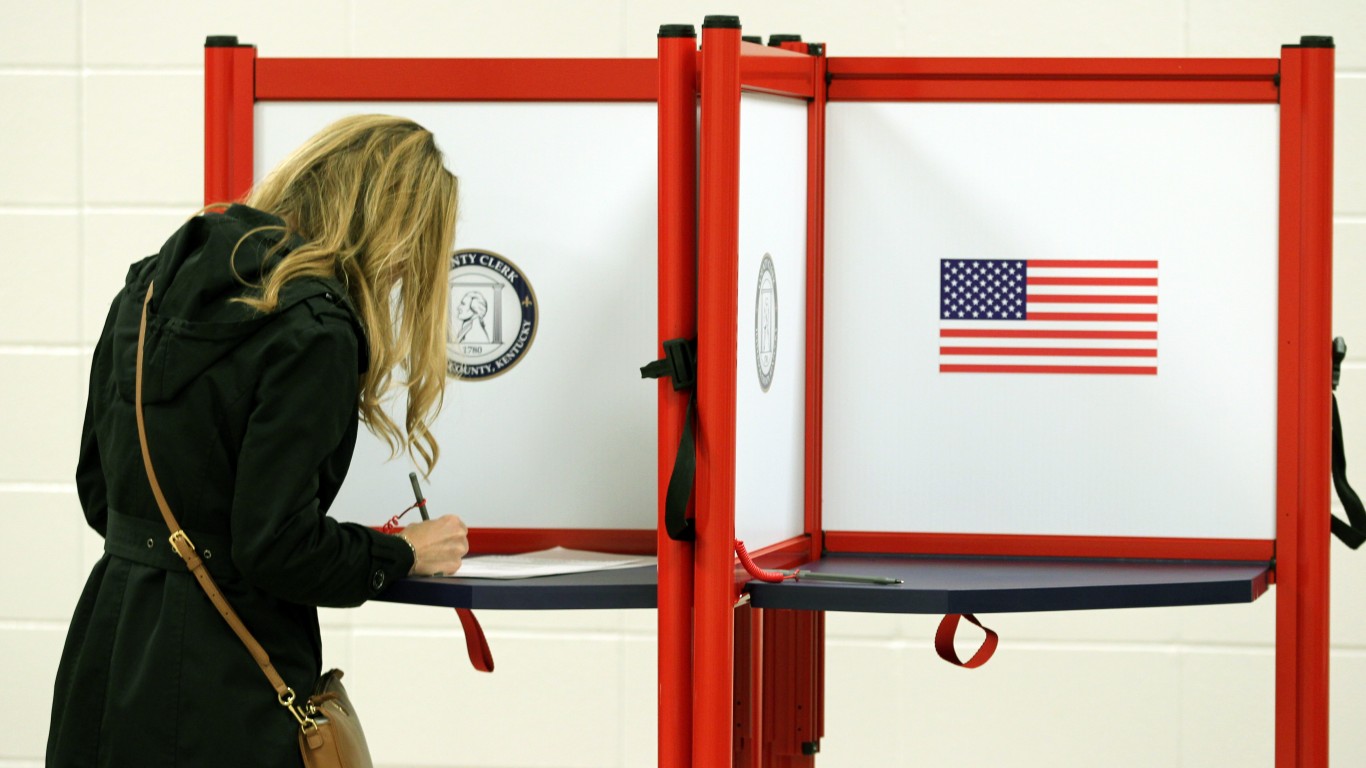
February is Black History Month, and what better way to observe it than to look at the achievements of the 11 Black Americans who have served in the United States Senate.
The first was Hiram Revels of Mississippi, who filled a vacant seat in 1870. He was followed by another Mississippi senator, Blanche K. Bruce. Unfortunately, it was almost another century before another Black American became a senator. (Read here about Martin Luther King Jr and 49 other most important civil rights leaders of the 20th century.)
To identify the 11 Black Americans who have served in the U.S. Senate, as well as their time served and in which states, 24/7 Wall St. consulted a number of sources, including the United States Senate and respective member’s websites.
In 1993, there was another first, when Carol Moseley Braun became the first Black American woman to serve as a senator. She represented Illinois until 1999. The next Black American senator also represented the Prairie State – Barack Obama. He went on to become the first Black American president in 2008 and won reelection in 2012. The appointment of William “Mo” Cowan to the Senate in February 2013 marked the first time that two Black Americans held the office simultaneously.
Today there’s another groundbreaking Black American in high office. In 2017, Kamala Harris became the first Black American to represent California in the Senate. She is currently vice president of the United States – the first woman, the first Black American, and Asian American to do so. (Here are 36 Black women who changed American history.)
Click here to see the 11 Black Americans who have served in the US Senate
Sen. Hiram Rhodes Revels
> State: Mississippi
> Career: January 1870 – March 1871
Hiram Rhodes Revels was the first African American to serve in the U.S. Congress, filling a vacant Senate seat in 1870. Republican Senator Charles Sumner of Massachusetts said at the time: “All men are created equal, says the great Declaration and now a great act attests this verity. Today we make the Declaration a reality.” Revels was born free, had a college education, and served as a chaplain in the Civil War.
[in-text-ad]

Sen. Blanche Kelso Bruce
> State: Mississippi
> Career: February 1874 – January 1880
A slave who became a successful businessman, Blanche Kelso Bruce was the second Black American to serve in the U.S. Senate and the first to be elected to a full term. He focused on protecting the rights of freedmen and other minorities.

Sen. Edward William Brooke III
> State: Massachusetts
> Career: November 1966 – November 1978
Edward W. Brooke’s election to the U.S. Senate in 1966 ended an 86-year absence of Black American senators. He served in a segregated military unit in World War II, reached the rank of captain, and won a Bronze Star and a Distinguished Service Award. He became a lawyer after the war.

Sen. Carol Moseley Braun
> State: Illinois
> Career: January 1993 – January 1999
Carol Moseley Braun was the first Black American woman senator and only the second Black senator since the Reconstruction Era. During her single term in office, she advocated for civil rights issues and for legislation on crime, education, and families.
[in-text-ad-2]

Sen. Barack Obama
> State: Illinois
> Career: January 2007 – November 2008
Barack Obama was not only the first Black American senator, but the first Black president. He was elected as a senator for Illinois in November 2004. Four years later he was elected as the 44th president of the United States and was reelected in 2012.

Sen. Roland Burris
> State: Illinois
> Career: January 2009 – November 2010
Roland Burris was the first Black American to work as a national bank examiner for the Treasury Department and the first to win a statewide election in Illinois. After serving more than 10 years as comptroller, he became attorney general of Illinois. He was appointed to the Senate to fill the vacancy caused by the resignation of Barack Obama.
[in-text-ad]
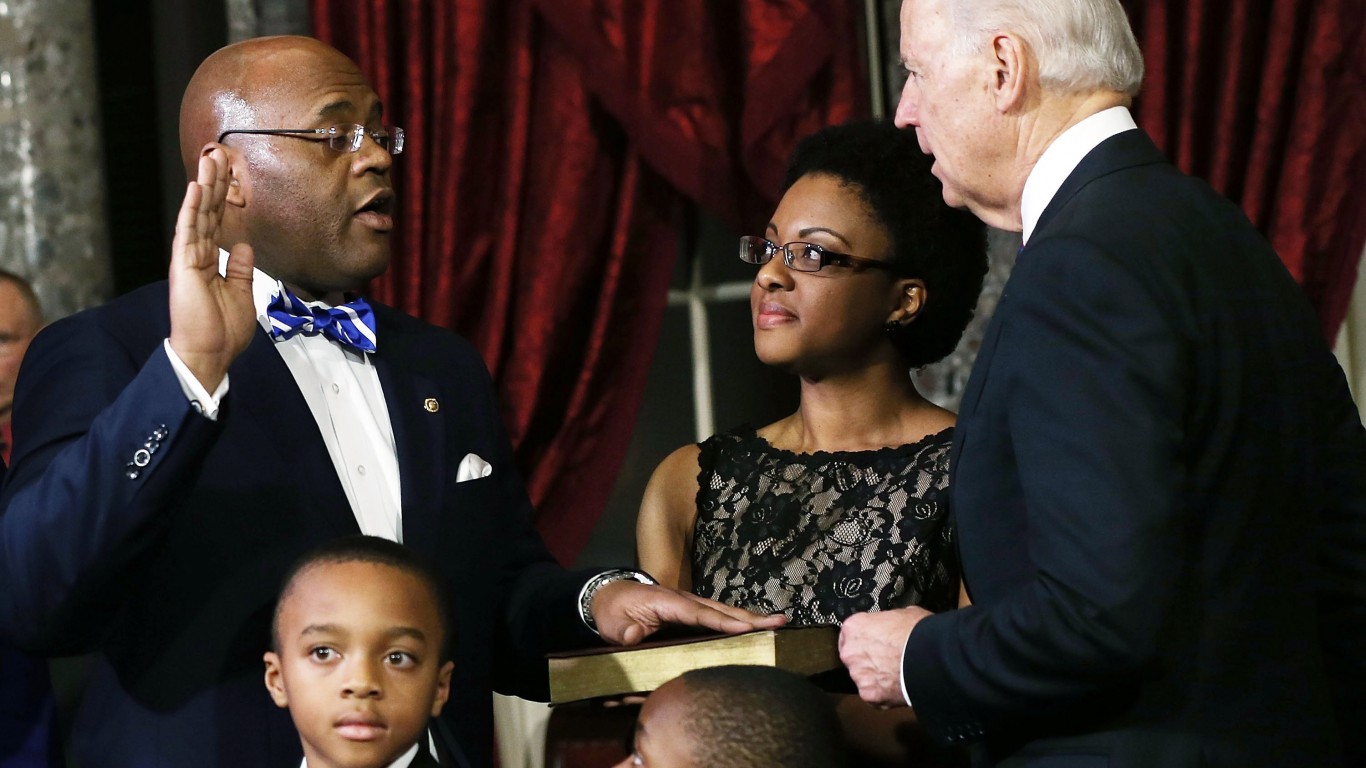
Sen. William “Mo” Cowan
> State: Massachusetts
> Career: February 2013 – July 2013
William “Mo” Cowan was appointed to the Senate in February 2013 to replace John Kerry, who became secretary of state. Cowan served only until July 2013, as a successor was chosen in a special election.
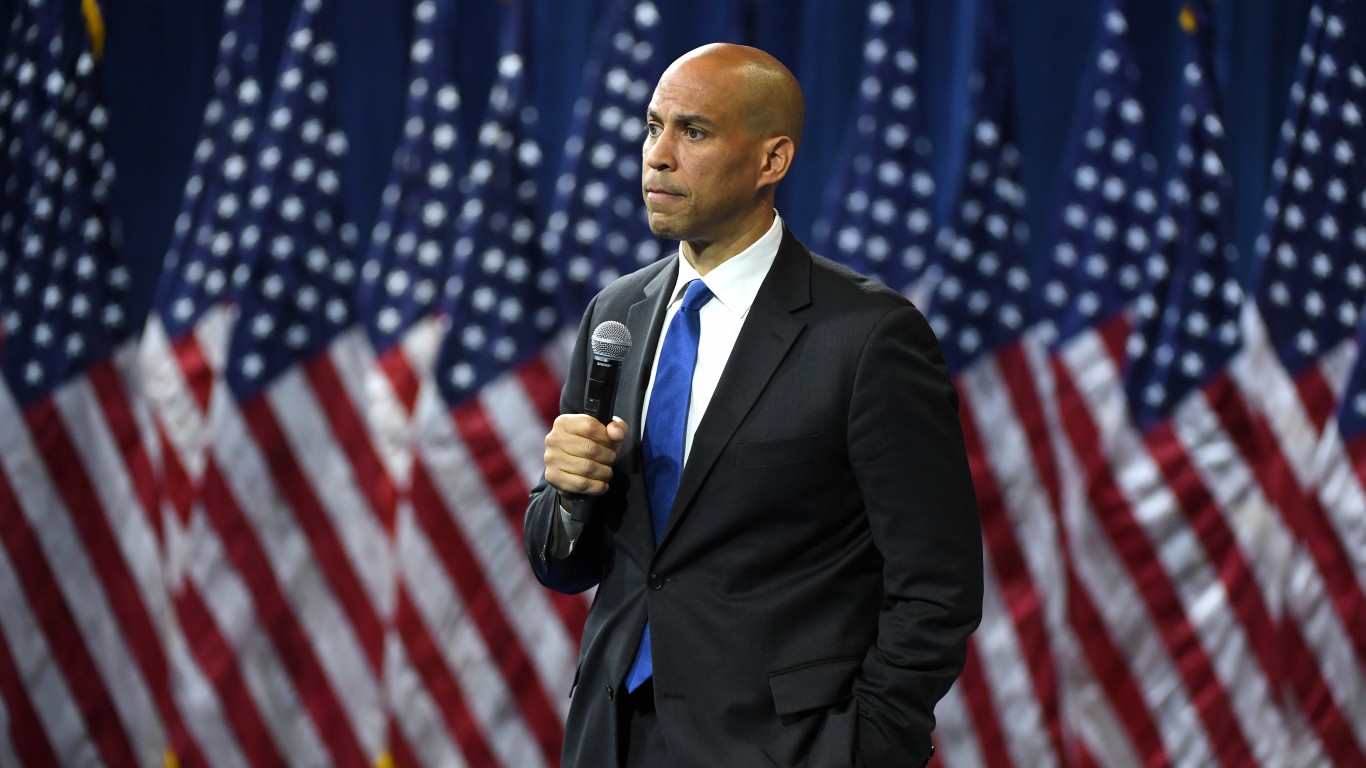
Sen. Cory Anthony Booker
> State: New Jersey
> Career: Oct. 2013 – Today
Cory Booker became the first Black American to represent New Jersey in the U.S. Senate in October 2013. He won a special election to fill the vacancy caused by the death of Frank Lautenberg. He was elected to a full term in November 2014 and reelected in November 2020.

Sen. Tim Scott
> State: South Carolina
> Career: January 2013 – Today
In 2013, Tim Scott became the first Black American since Reconstruction to represent a Southern state – South Carolina – in the Senate. He was previously elected as a Republican to the 112th Congress and served one term in the House of Representatives before being appointed to the Senate.
[in-text-ad-2]

Sen. Kamala Devi Harris
> State: California
> Career: January 2017 – January 2021
Kamala Harris became the first Black American to represent California in the U.S. Senate in January 2017. She achieved several firsts in 2020, when she became the first woman and the first Black American and Asian American elected U.S. vice president, serving alongside President Joe Biden.
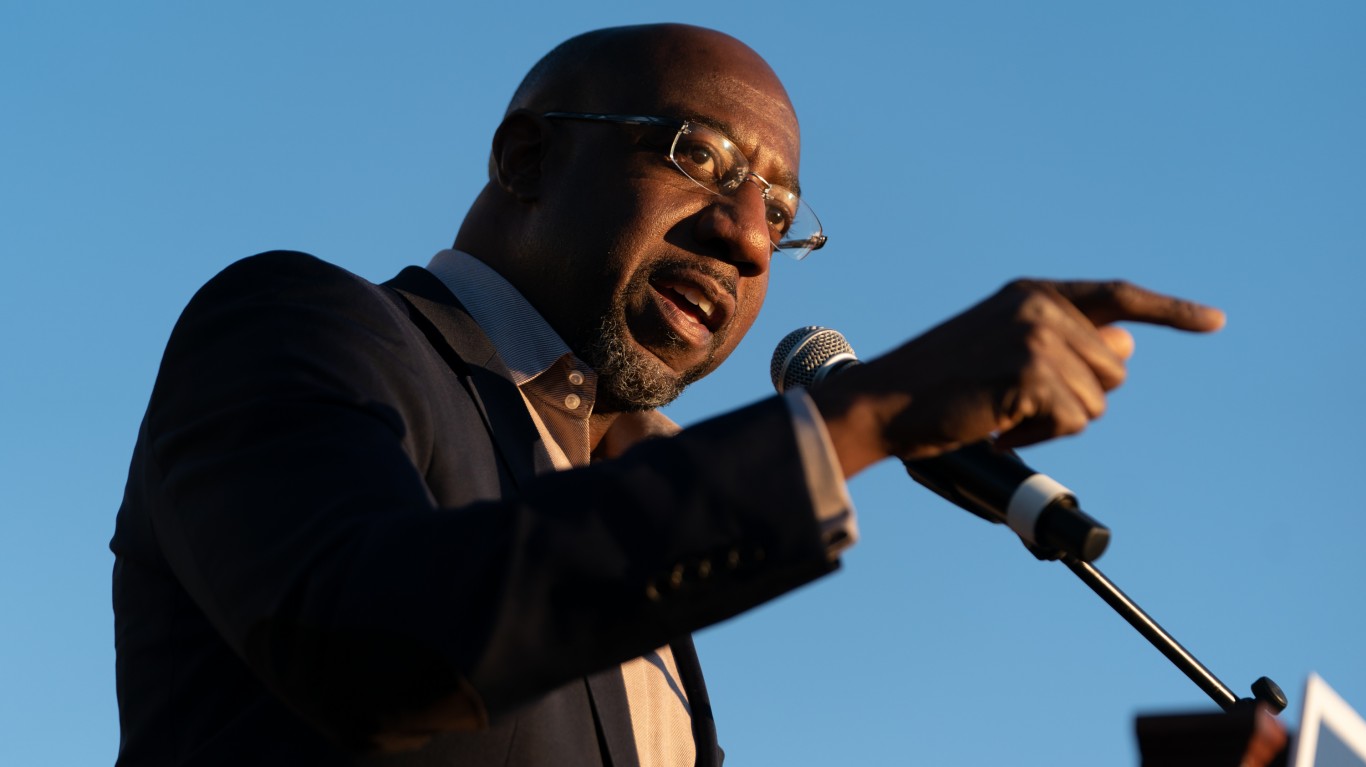
Sen. Raphael Gamaliel Warnock
> State: Georgia
> Career: January 2021 – Today
Raphael Warnock became the first Black American senator from Georgia in 2021. He won a special election to fill the vacancy caused by the resignation of Johnny Isakson. The seat was previously held by appointed Sen. Kelly Loeffler.
Is Your Money Earning the Best Possible Rate? (Sponsor)
Let’s face it: If your money is just sitting in a checking account, you’re losing value every single day. With most checking accounts offering little to no interest, the cash you worked so hard to save is gradually being eroded by inflation.
However, by moving that money into a high-yield savings account, you can put your cash to work, growing steadily with little to no effort on your part. In just a few clicks, you can set up a high-yield savings account and start earning interest immediately.
There are plenty of reputable banks and online platforms that offer competitive rates, and many of them come with zero fees and no minimum balance requirements. Click here to see if you’re earning the best possible rate on your money!
Thank you for reading! Have some feedback for us?
Contact the 24/7 Wall St. editorial team.
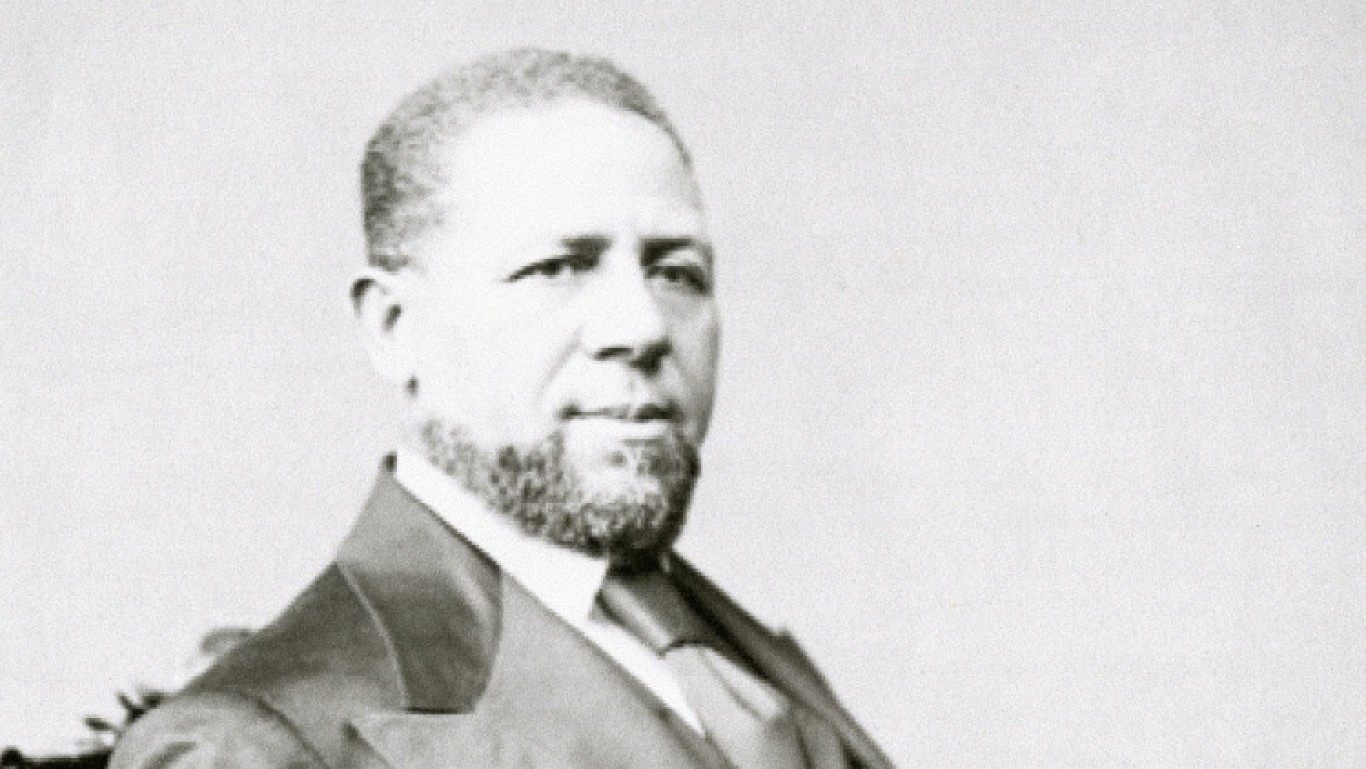
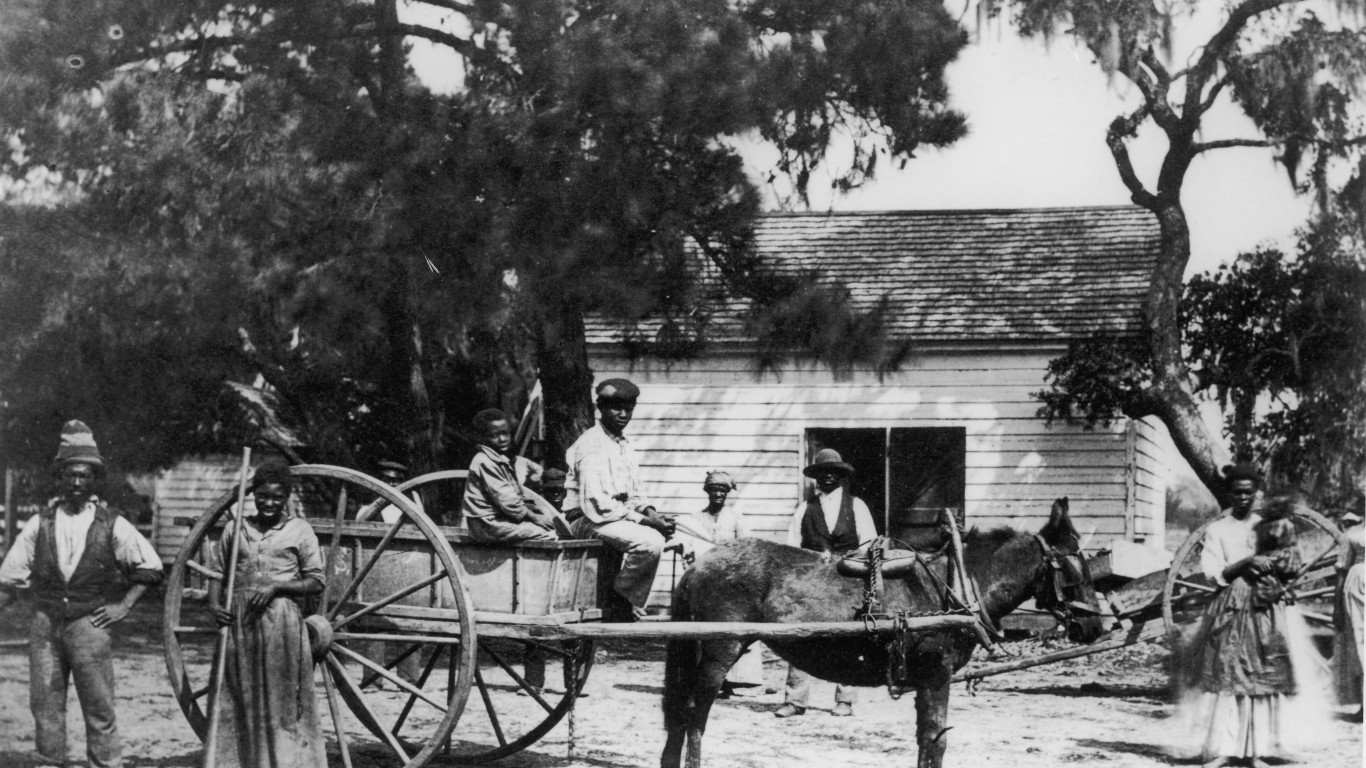 24/7 Wall St.
24/7 Wall St.
